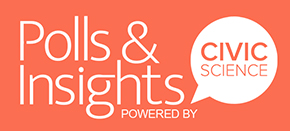Impulse buying can evoke a spectrum of emotions, as revealed by a recent survey conducted by CivicScience. The survey asked 57,002 U.S. users, “Do impulse buys make you happy?” The responses varied, with 11% of participants affirming that impulse buys always bring them happiness, while 60% said they sometimes do. Conversely, 20% of respondents stated that impulse buys never make them happy.
Income levels played a significant role in shaping these responses. Those who reported that impulse buys always make them happy were more likely to earn between $0 and $29,999, accounting for 22% of this group. In contrast, 25% of those who said impulse buys never make them happy also fell within this income bracket. Interestingly, the lowest percentage across all response categories was consistently found in the $300,000 to $399,999 income range, at just 1%.
Age also influenced the survey results. Younger respondents, particularly those aged 18 to 24, were more inclined to say impulse buys always make them happy, with 20% of this age group expressing such sentiments. On the other hand, older respondents, especially those aged 65 or older, were more likely to report that impulse buys never bring them happiness, with 22% of this demographic sharing this view.
Gender differences were minimal but notable. A slight female majority was observed among those who said impulse buys always (51%) or sometimes (54%) make them happy. Conversely, males were more prevalent among those who stated that impulse buys never make them happy, comprising 54% of this group.
Parental status also provided intriguing insights. Among those who said impulse buys always make them happy, 49.0% were parents. This contrasts with the 40% of parents who reported that impulse buys sometimes make them happy. Interestingly, grandparents were more represented among those who said impulse buys never make them happy, at 30%.
Education levels further distinguished respondents’ views on impulse buying. Those with a high school diploma or GED were more likely to say impulse buys always make them happy, at 32.0%. In contrast, individuals with graduate or professional degrees were more inclined to report that impulse buys never make them happy, with 12% of this group expressing such sentiments.
Urbanicity also shaped responses. City dwellers were more likely to say impulse buys always make them happy, with 42% of this group expressing this view. Meanwhile, those living in the suburbs were more inclined to report that impulse buys sometimes make them happy, at 45%.
Overall, the survey highlights the nuanced relationship between impulse buying and happiness, influenced by factors such as income, age, gender, parental status, education, and urbanicity. These insights offer a glimpse into the diverse perspectives on impulse buying across different demographics.
This article’s data comes solely from CivicScience’s database, which contains nearly 700,000 poll questions and 5 billion consumer insights. Our AI content creation tool, DataScribe, supported the article.


